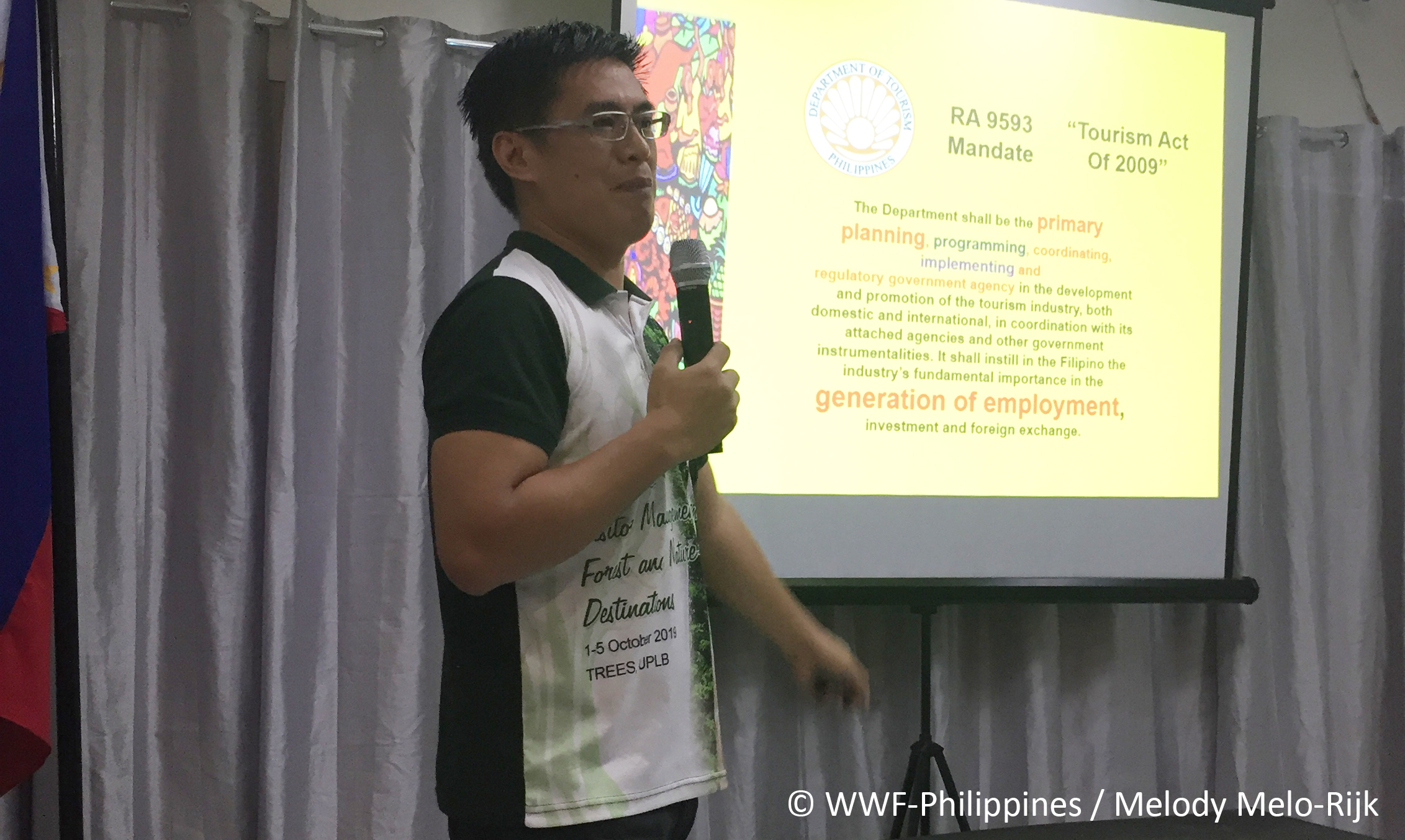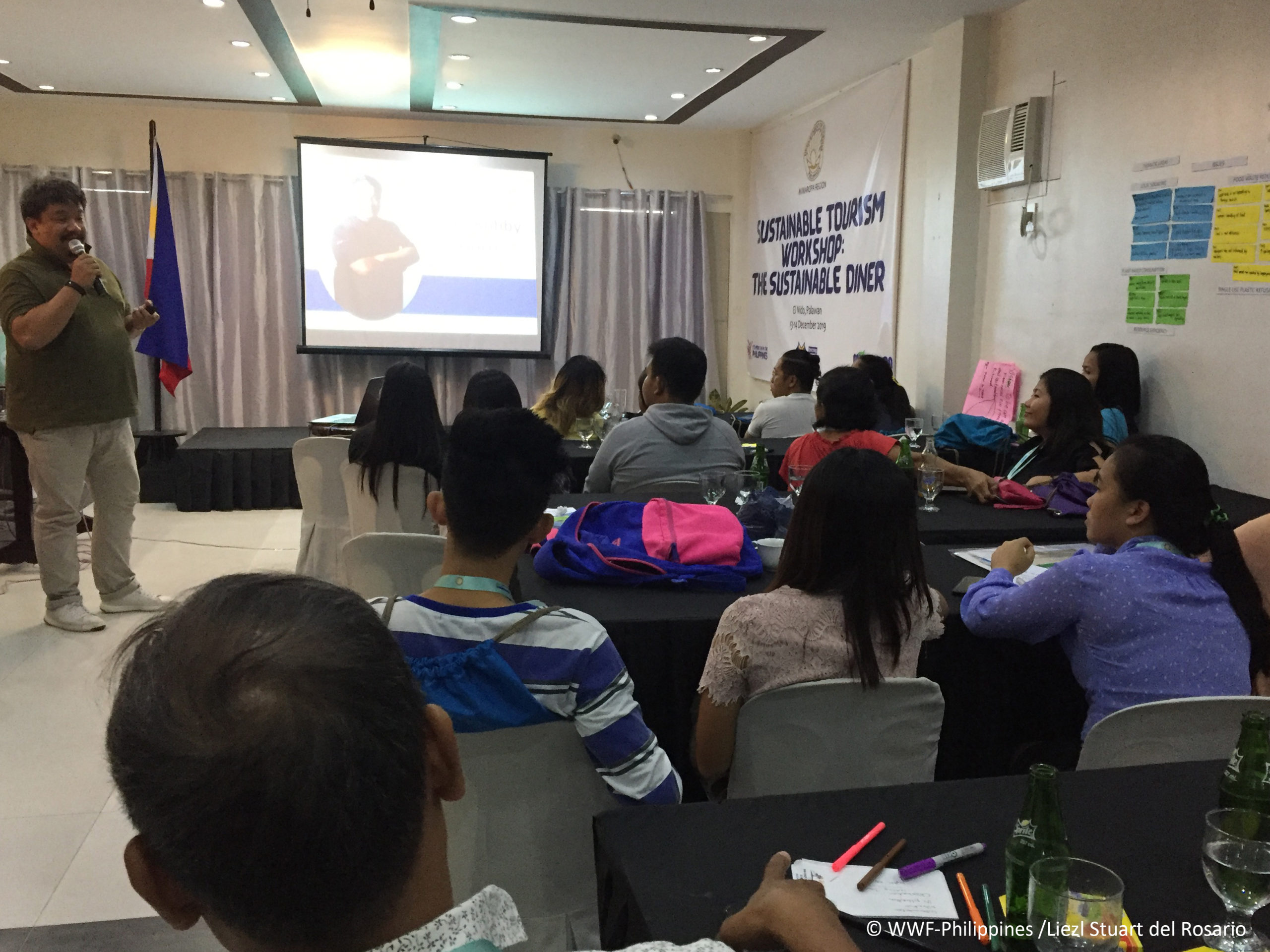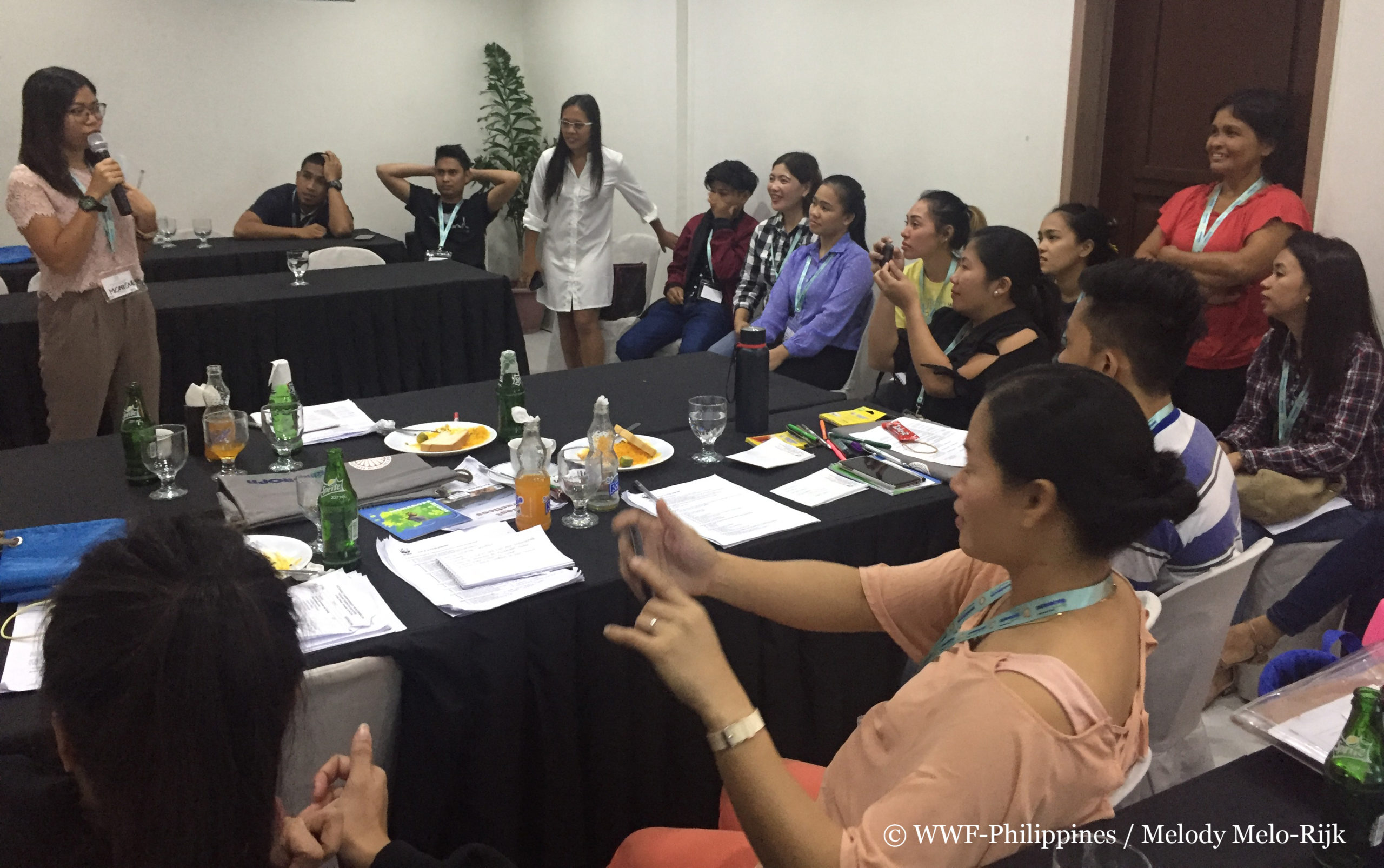WWF-Philippines and the Department of Tourism Conduct a Sustainability Training for El Nido Tourism and Food Service Stakeholders
December 2019
The World Wide Fund for Nature (WWF) Philippines, in partnership with the Department of Tourism (DOT) Philippines, facilitated a training on Sustainable Consumption and Production (SCP) for the tourism and food service sectors in the Municipality of El Nido - one of the top tourist attractions in the Province of Palawan. The training was held last December 13-14, 2019 at La Casa Teresa Resort. As part of The Sustainable Diner: A Key Ingredient for Sustainable Tourism - a project implemented by WWF-Philippines - the training aims to increase the skills and knowledge of tourism and food service sector practitioners in applying sustainable practices like food safety and safe food handling, and implementing food waste management

Donald Balanhi, Senior Tourism Operations Officer of DOT, welcomed the participants for the two-day training.
Melody Melo-Rijk, WWF-Philippines’ Project Manager for Sustainable Consumption and Production in the Philippines, facilitated a fun and engaging session on food safety and safe food handling based on ServSafe, a food and beverage safety training and certification program that covers the latest Food and Drug Administration (FDA) Code. Through participatory group discussions, games, and quizzes, participants were able to interactively exchange ideas, learnings, and insights on how they manage food safety and safe food handling. This provides participants a better understanding and comprehensive approach on the importance of food sanitation.
The second part of her session focused on food waste management which was based on a toolkit developed by WWF US in collaboration with the American Hotel and Lodging Association (AHLA) and the Rockefeller Foundation. The Food Waste Management Toolkit aims to build a system for food waste management focusing on two major phases: pre-service and post-service. The findings from these two phases will then be used as baseline data to set food waste reduction goals designed for private sector and organizations.

Chef Raoul “Robby” Goco, Owner of Green Pastures/Cyma/Souv!, shares about his passion for sustainable techniques on food preparation, delicious recipes and efficient use of resources.
Chef Raoul “Robby” Goco, owner of Green Pastures/Cyma/Souv!, discussed about the Four Core Areas of a Sustainable Restaurant which focused on: 1) use of local and sustainable ingredients, 2) minimizing food waste and single-use plastics, 3) conserving resources such as water, electricity, and petroleum, and 4) promoting the consumption of healthy and plant-based dishes. He highlighted a variety of recipes which use ingredients that can all be sourced locally. Utilizing all parts of the fish and meat to cook delicious meals is also a good practice to lessen the food waste. “Everything from nose to tail is cross-utilized. Nothing goes to waste. Whenever you throw something, that is money in the garbage can,” says Chef Goco as he continued to share his sustainable culinary techniques. Learning different methods of cooking can help conserve energy like open-fire grill and induction burners. He ended his session with a statement. “When you’re able to make vegetables taste great and delicious… that is a true mark of a Great Chef.”
Liezl R. Stuart del Rosario, Policy Specialist of The Sustainable Diner Project, shared a brief overview of the project and its overall objectives, including the importance of SCP and its impact to the environment. The visioning exercise guided the participants towards identifying their goals in terms of initiating or leveling up sustainability practices in the establishments they represent.
On the other hand, the participatory action planning workshop helped the participants to collectively develop the next steps on how to achieve their set goals. A core group was formed, which consists of elected officers. The participants identified the issues they encounter and have come up with potential solutions. Some of the mentioned problems were that having excessive leftovers when dining out can lead to more food waste. To avoid this, it should be a practice for consumers to take only what they can finish, especially for buffet restaurants. For restaurant owners, they have to come up with ideas that take into consideration the guests’ food preferences and restrictions. It was also discussed that one of the ways to sustainably dispose organic wastes is through composting. Some of the participants explained that due to limited space, not all can do backyard composting. To resolve this, there are other organic techniques which do not require wide spaces such as bokashi composting. It was also raised that due to poor soil quality, restaurant owners cannot grow their own crops, which results to insufficient supply of locally produced goods. Directly coordinating with farmers, exploring hydroponics, and finding alternative local suppliers are some of the possible solutions that were identified.

Through participatory action planning, representatives from the food service sector share their knowledge and experiences to plan together to achieve the sustainable goal.
The Sustainable Diner project would like to thank the DOT-Philippines for their continued support and trust, as well as the DOT Region IV for allowing the project to capacitate and empower their local tourism stakeholders. While the project mainly focuses on three key sites, - Quezon City, Cebu City, and Tagaytay City - being able to spread our message and deliver our trainings in other tourism hotspots across the country would help in ensuring that we are able to share our advocacy on sustainable dining with more individuals and businesses.
The Sustainable Diner project, under WWF-Philippines’ Sustainable Consumption and Production, is part of the International Climate Initiative (IKI). The Federal Ministry for the Environment, Nature Conservation, and Nuclear Safety (BMU) supports this initiative on the basis of a decision adopted by the German Bundestag.
For more information, please contact:
Melody Melo-Rijk
Project Manager
mmelorijk@wwf.org.ph
Liezl Stuart del Rosario
Policy Specialist
lstuartdelrosario@wwf.org.ph
